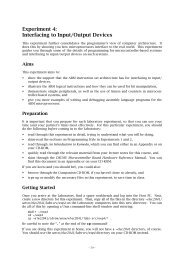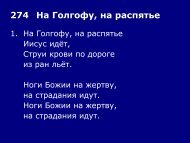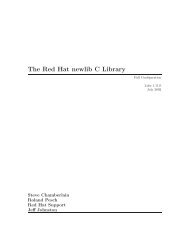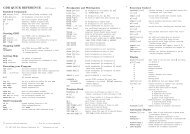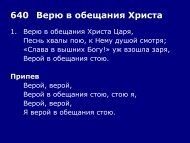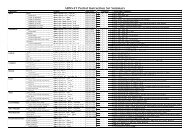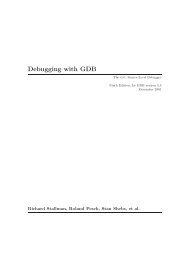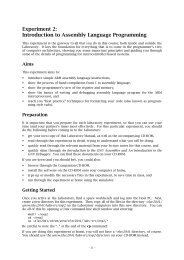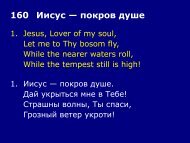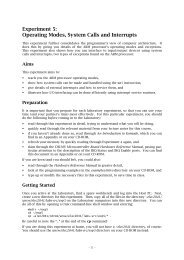The ARM-THUMB Procedure Call Standard
The ARM-THUMB Procedure Call Standard
The ARM-THUMB Procedure Call Standard
You also want an ePaper? Increase the reach of your titles
YUMPU automatically turns print PDFs into web optimized ePapers that Google loves.
<strong>The</strong> <strong>ARM</strong>-<strong>THUMB</strong> <strong>Procedure</strong> <strong>Call</strong> <strong>Standard</strong>7.2 Narrow argumentsIn C++ and in ANSI-C in the presence of a function prototype, a called function can assume that a receivedparameter value is in the range of its parameter type. For example, if the parameter type is unsigned char, itsvalue can be assumed to lie in the range UCHAR_MIN to UCHAR_MAX. <strong>The</strong> calling function must ensure that theargument value lies in the range of the called function’s parameter type.In pre-ANSI C and in ANSI-C using pre-ANSI function declaration syntax, narrow argument values are widened bythe default promotion rules. A called function must defensively narrow the values of its narrow parametersbecause the calling function cannot ensure that the argument values are in range (when the call is made, nothingis known about the types the called function’s parameters).Analogous statements hold for the floating-point types float and double.In C++, and in ANSI-C in the presence of a function prototype, a calling function does not convert a floatargument value to double if the called function’s parameter type is float.If a float argument value matches an ellipsis (‘...’) in the called function’s parameter list, or is being passed to apre-ANSI C function of unknown parameter type, the calling function must convert the value to double.7.3 Result return7.3.1 Non-floating-point resultso An integral result no wider than a word is returned in a1.oAn __int64 result is returned in a1, a2 (high address part in a2).o A structure or union result no larger than a word is returned in a1.Larger structured values are returned indirectly via an additional address argument that is passed first in theargument list. For example:struct S f(void);struct S sv = f();Is compiled as if you had written:void f(struct S *);struct S sv;f(&sv);7.3.2 Floating-point resultsFloating-point results (no-floating-point-hardware variants)A single-precision result is returned in a1.A double-precision result is returned in {a1, a2} (high address part in a2).Floating-point results (FPA variant)A floating-point result is returned in f0, independently of its precision.Floating-point results ( VFP variant)A single-precision result is returned in s0, a double-precision result in d0.SWS ESPC 0002 A-05 Page 26 of 37



